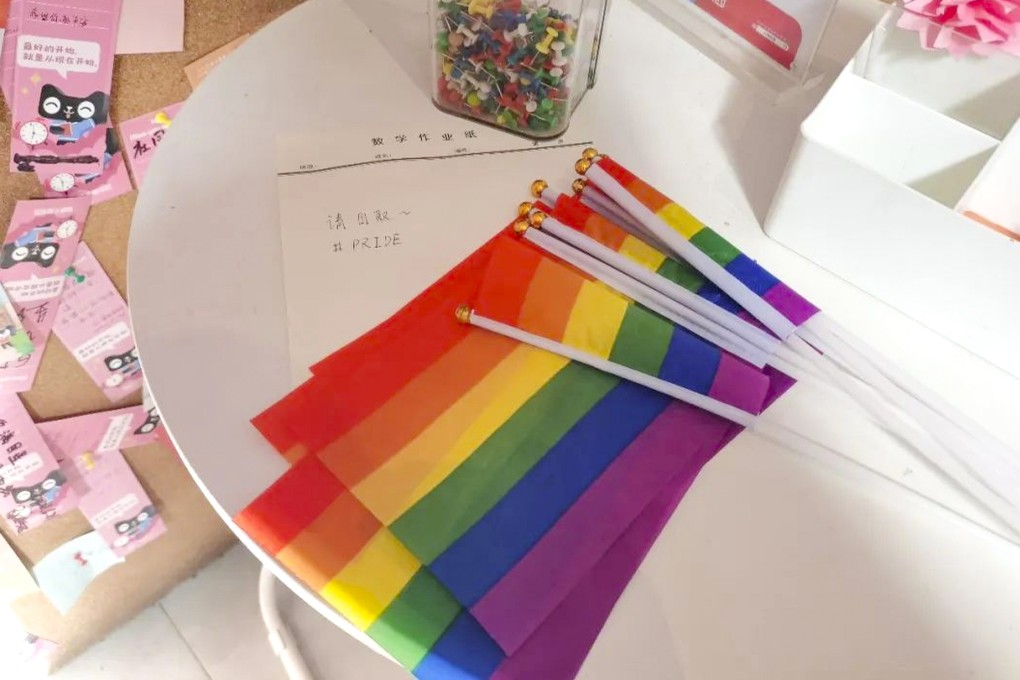Advertisement
Chinese university students disciplined over rainbow flags file lawsuit against Education Ministry
- For six months, two Tsinghua students have petitioned to have penalty handed down by the university in July overturned
- Advocates commend the pair for persisting in a mainland environment where public discussion of LGBTQ rights is considered sensitive and is censored
Reading Time:2 minutes
Why you can trust SCMP
4

Vanessa Caiin Shanghai
Two students at one of China’s top universities disciplined last year for distributing rainbow flags on campus have filed a lawsuit against the Ministry of Education, demanding it review the penalty.
The Tsinghua University students, who would only be identified by their surnames Huang and Li, filed the petition with the Beijing No 1 Intermediate People’s Court on Monday, Huang said.
The two women were given formal disciplinary warnings by Tsinghua’s student affairs office in July last year after they left 10 rainbow flags in a campus supermarket.
Advertisement
They have been seeking to have the decision overturned since then, appealing first within the university and then to the Beijing Municipal Education Commission, to no avail.
The students decided to file the lawsuit after the Ministry of Education dismissed their application for an administrative review early this month. The ministry said their case “does not fall within the scope of administrative reconsideration”.
Advertisement
It is among very few instances of lawsuits filed over the expression of support for LGBT rights on the mainland, where public discussion on the topic is considered sensitive and is censored.
Huang said they objected to the accusation of “distributing unauthorised promotional material” on campus, a charge that had “negative impacts”.
Advertisement
Select Voice
Choose your listening speed
Get through articles 2x faster
1.25x
250 WPM
Slow
Average
Fast
1.25x
